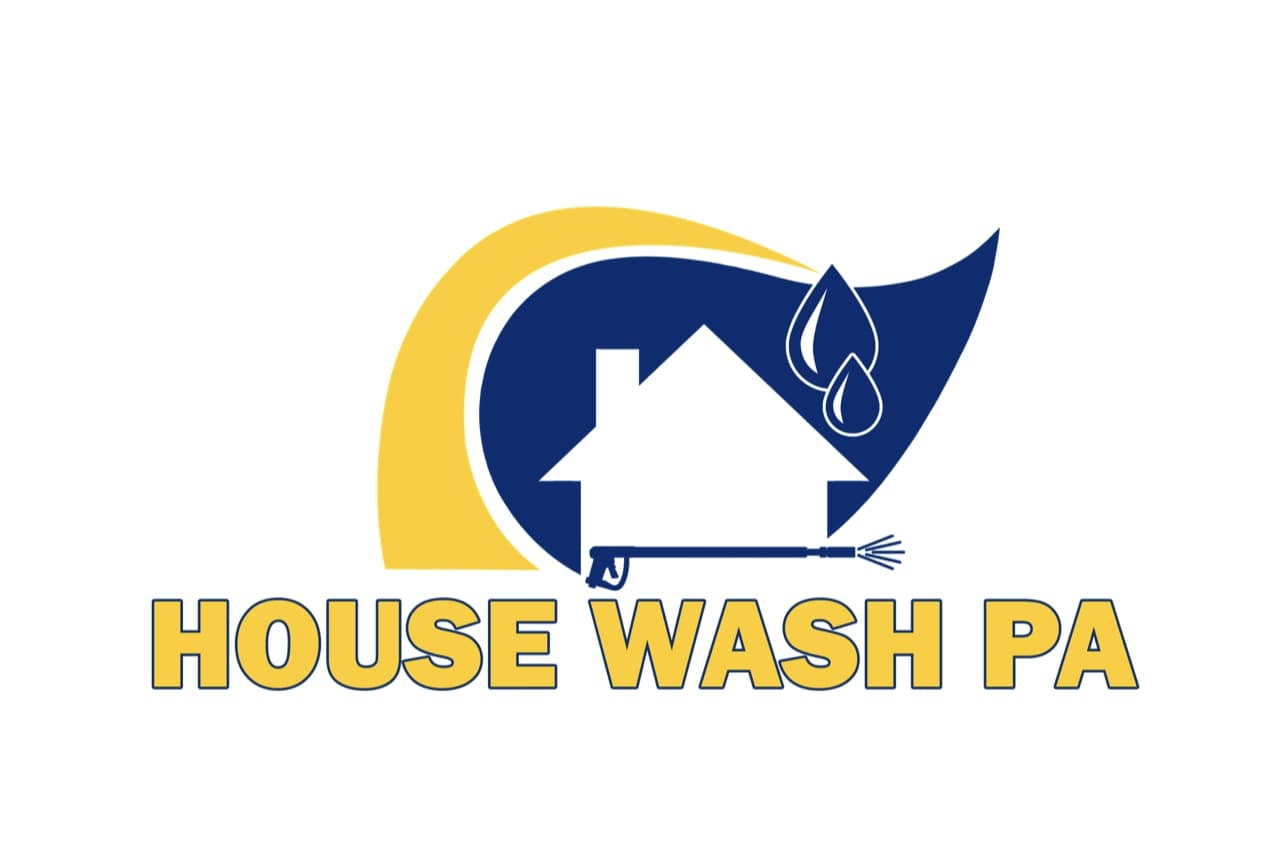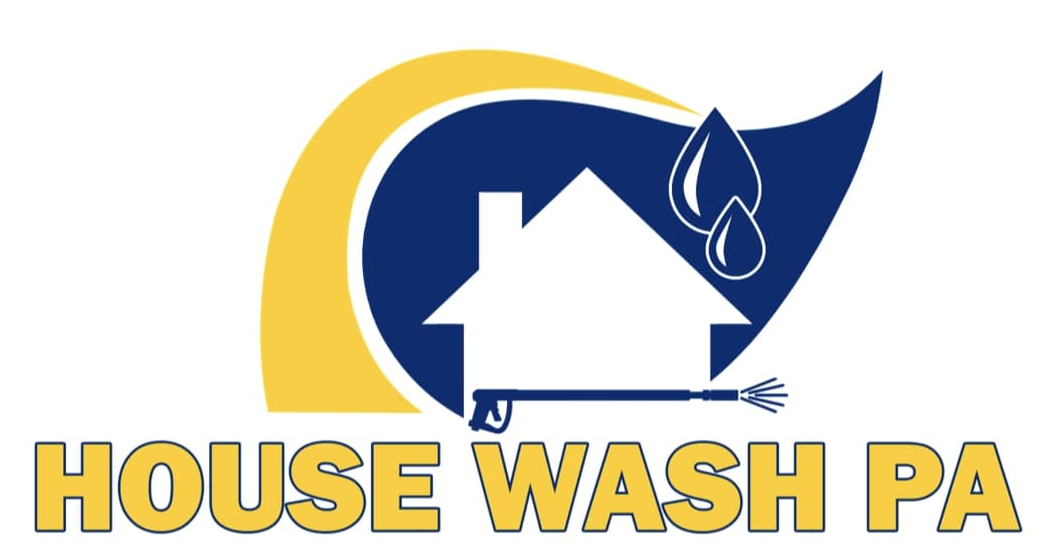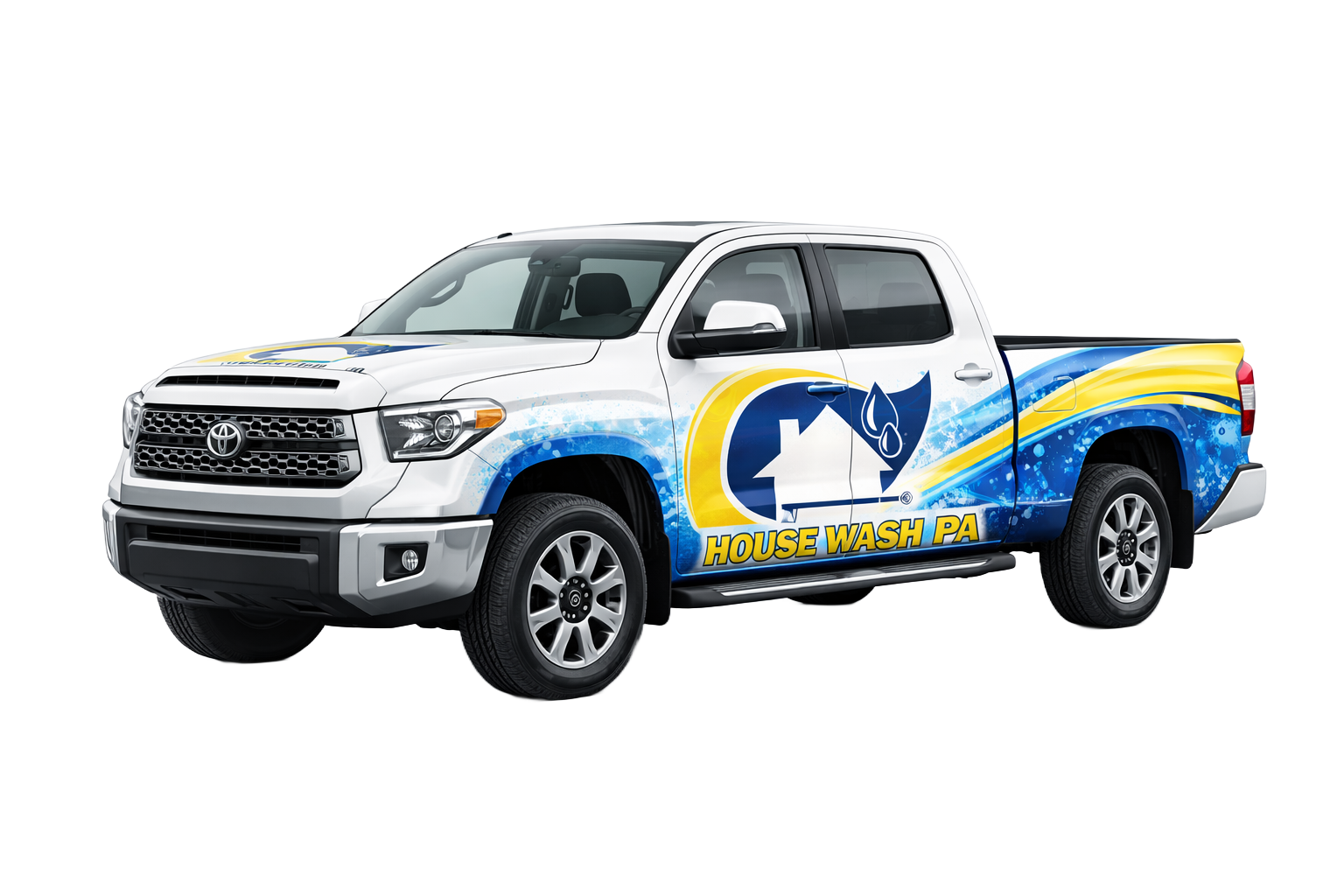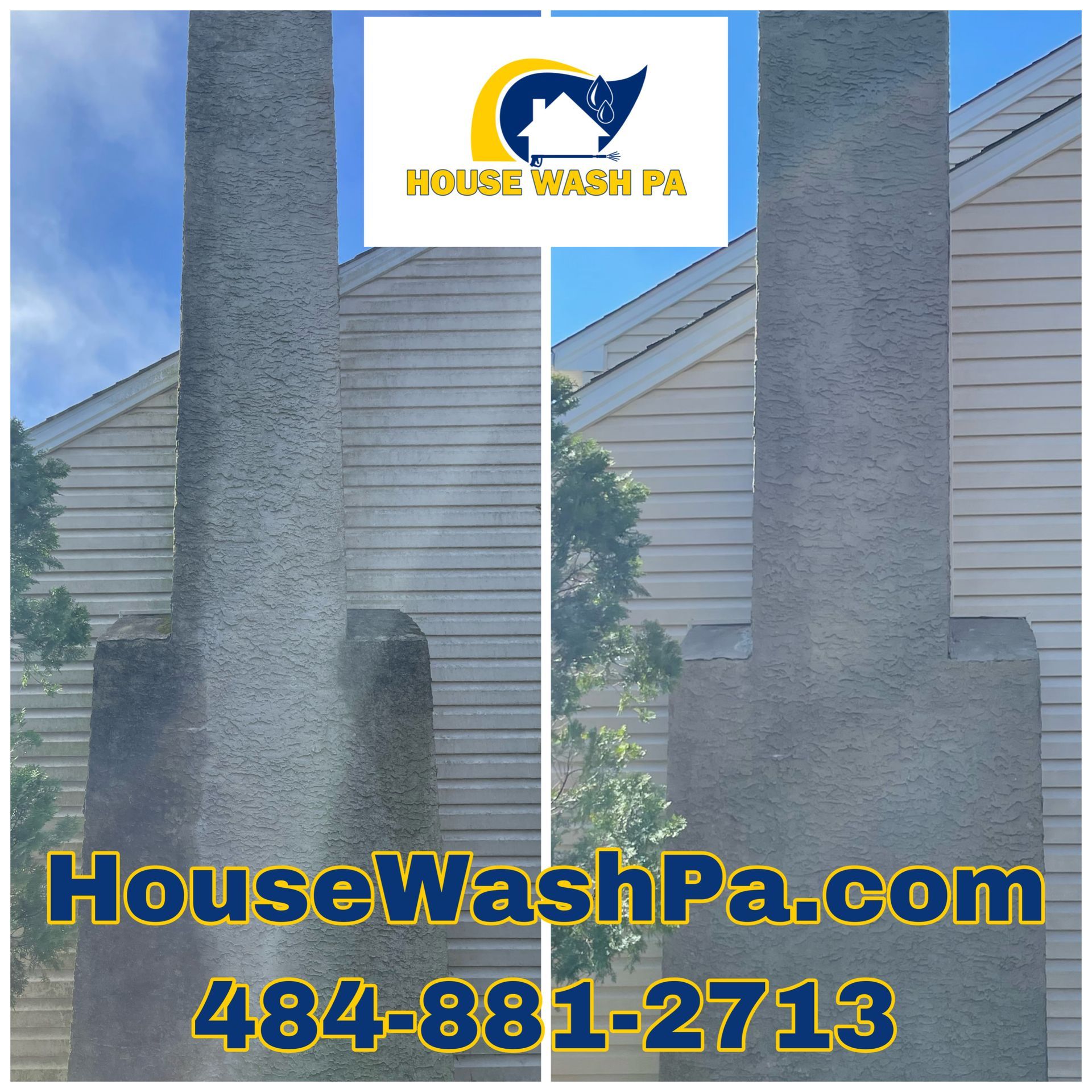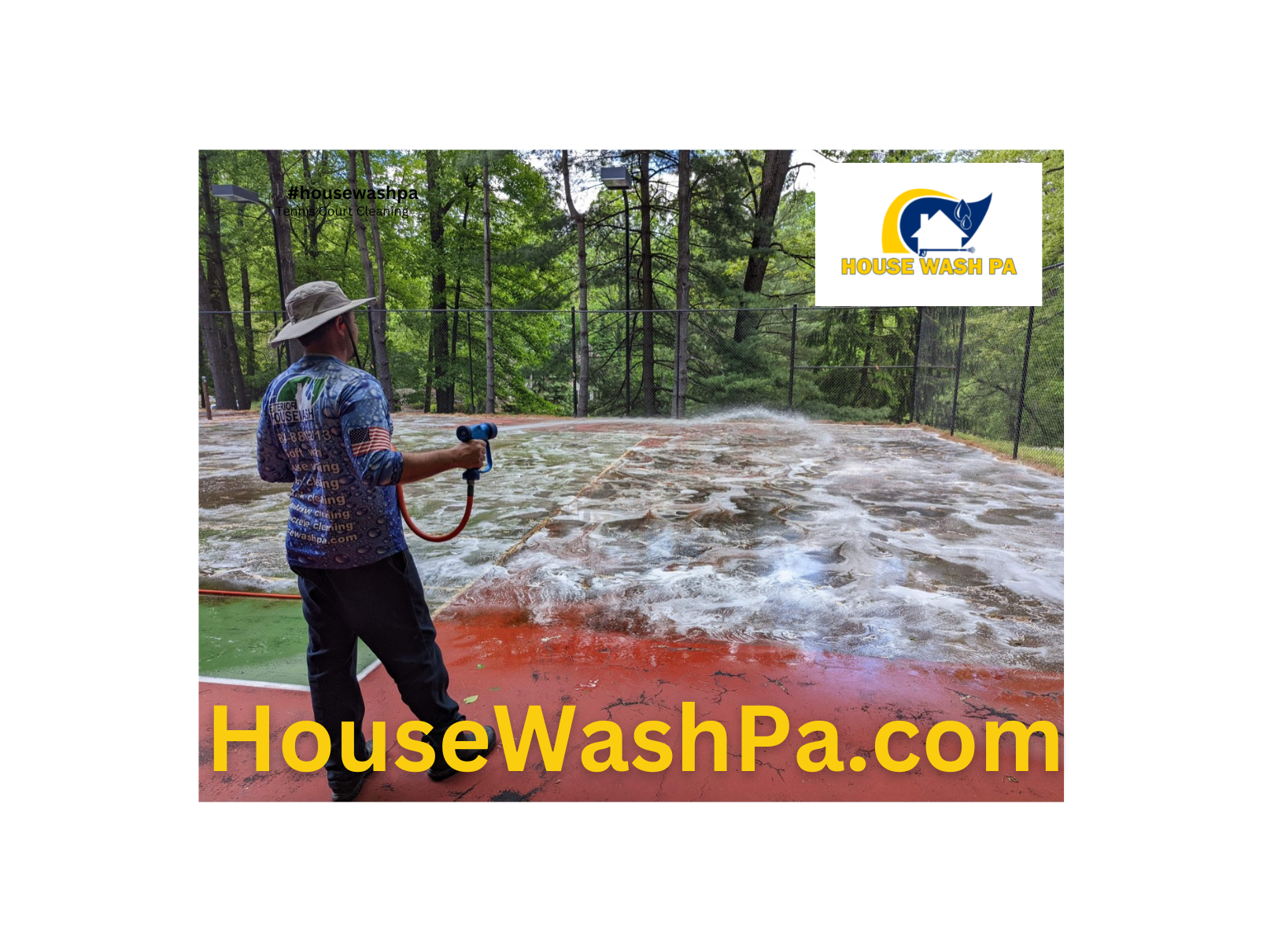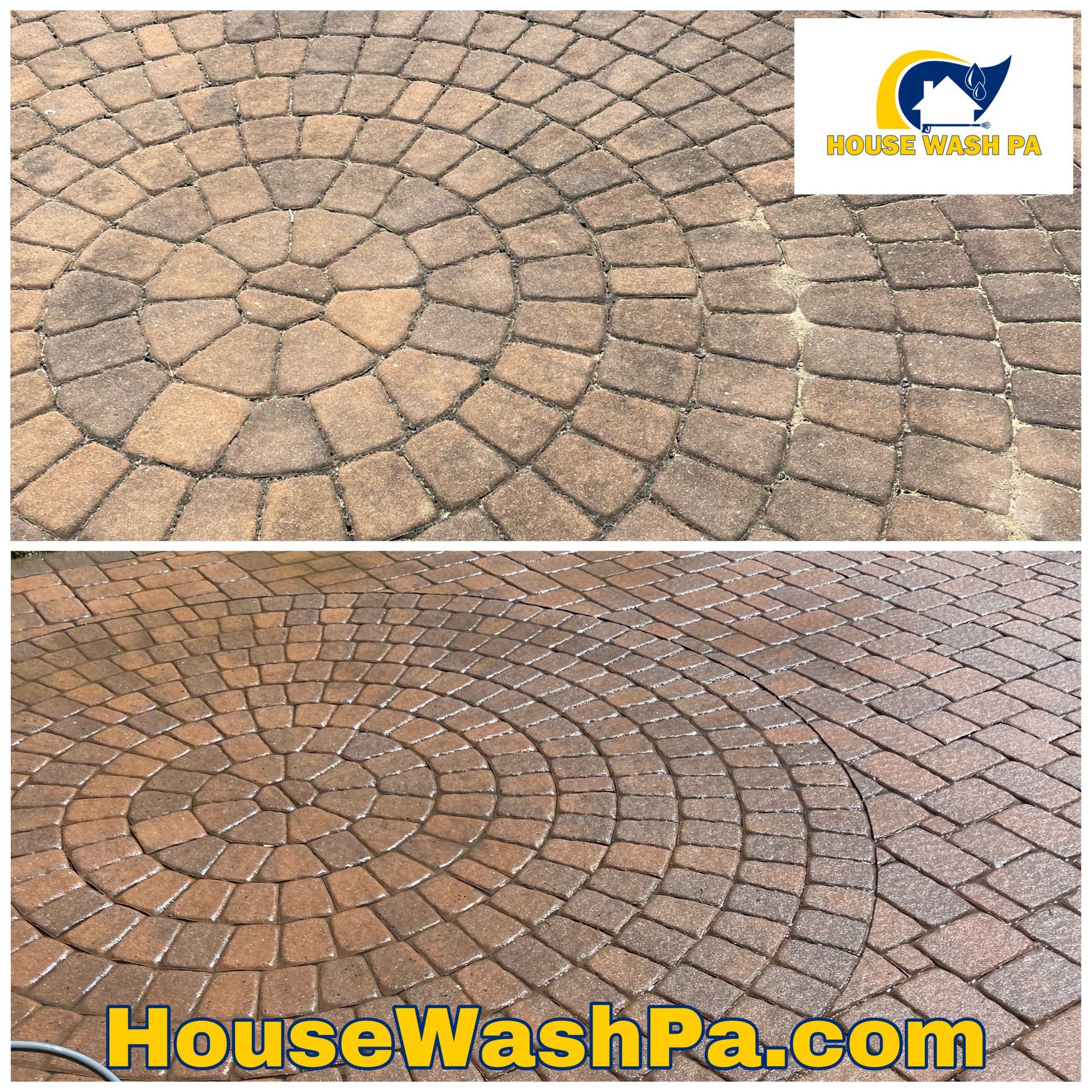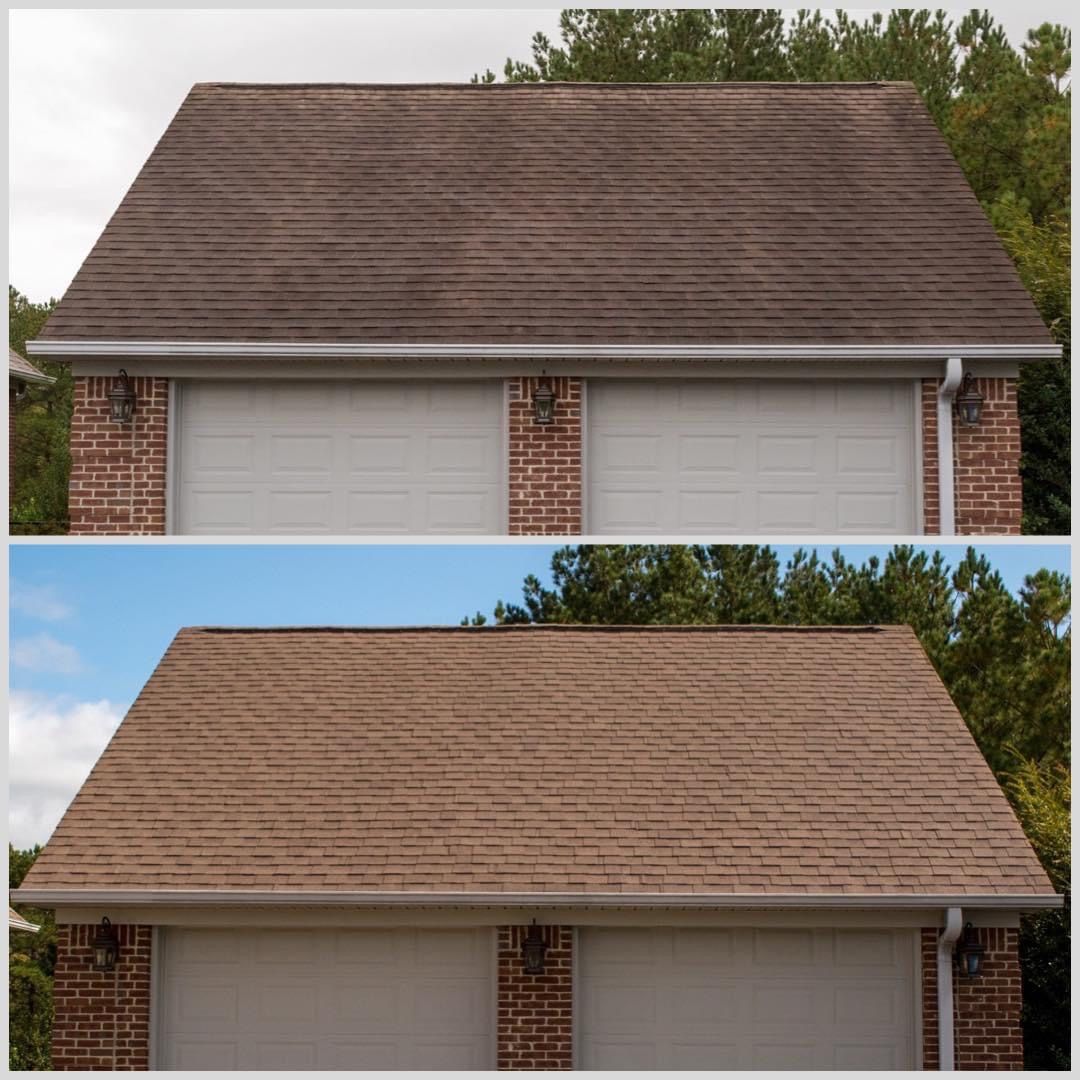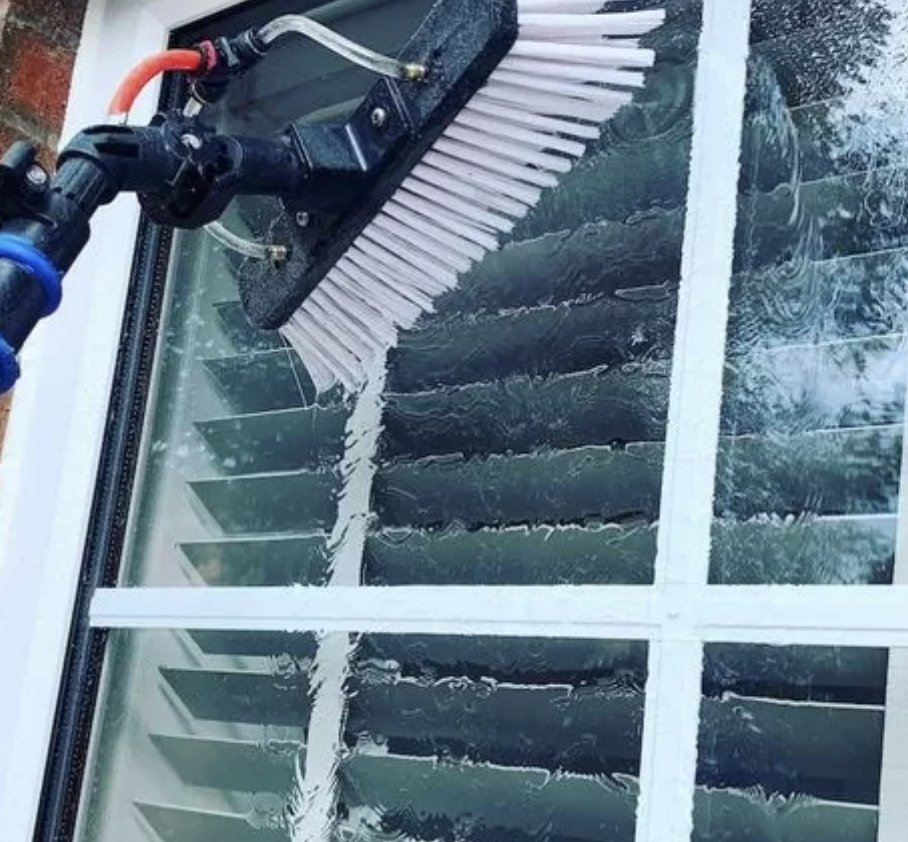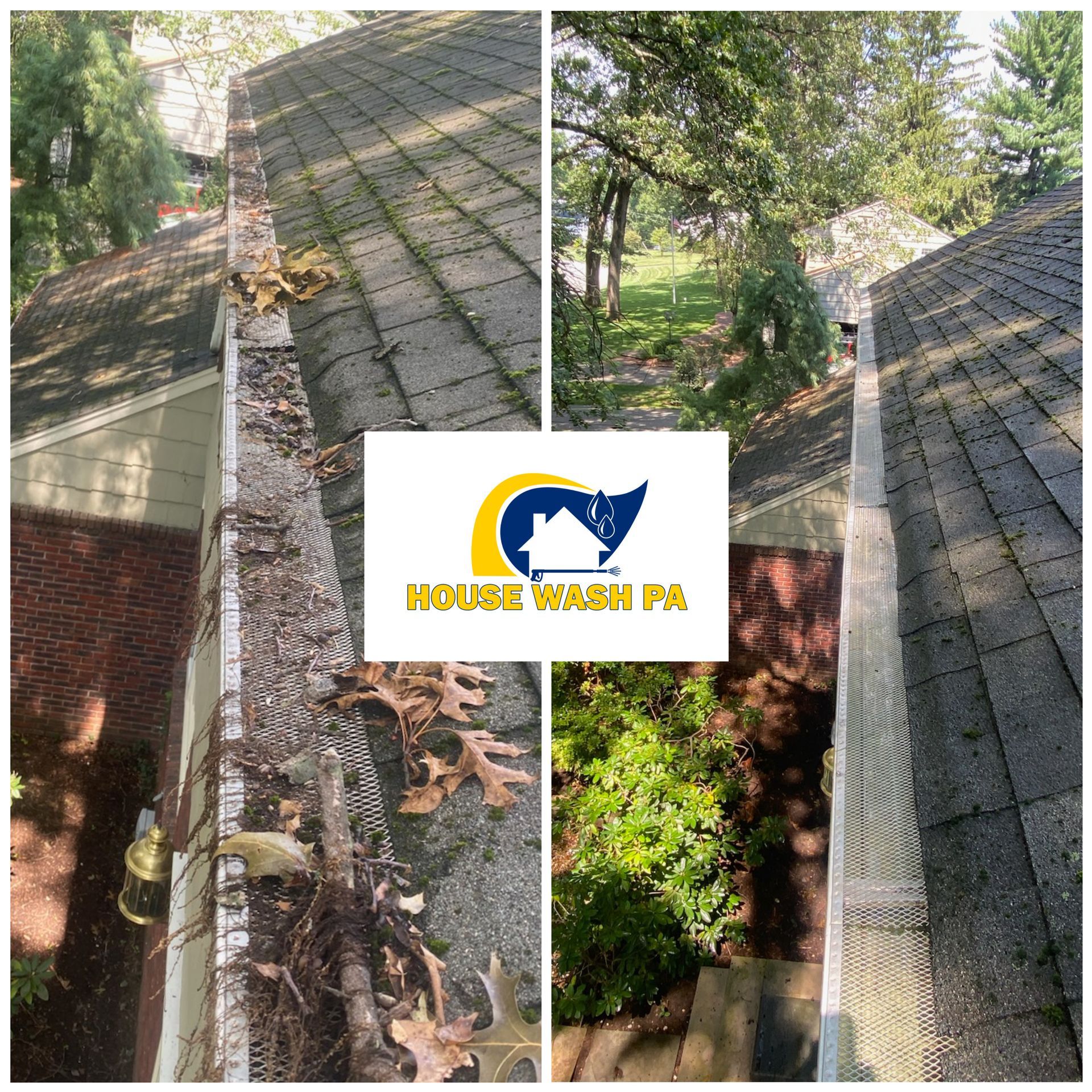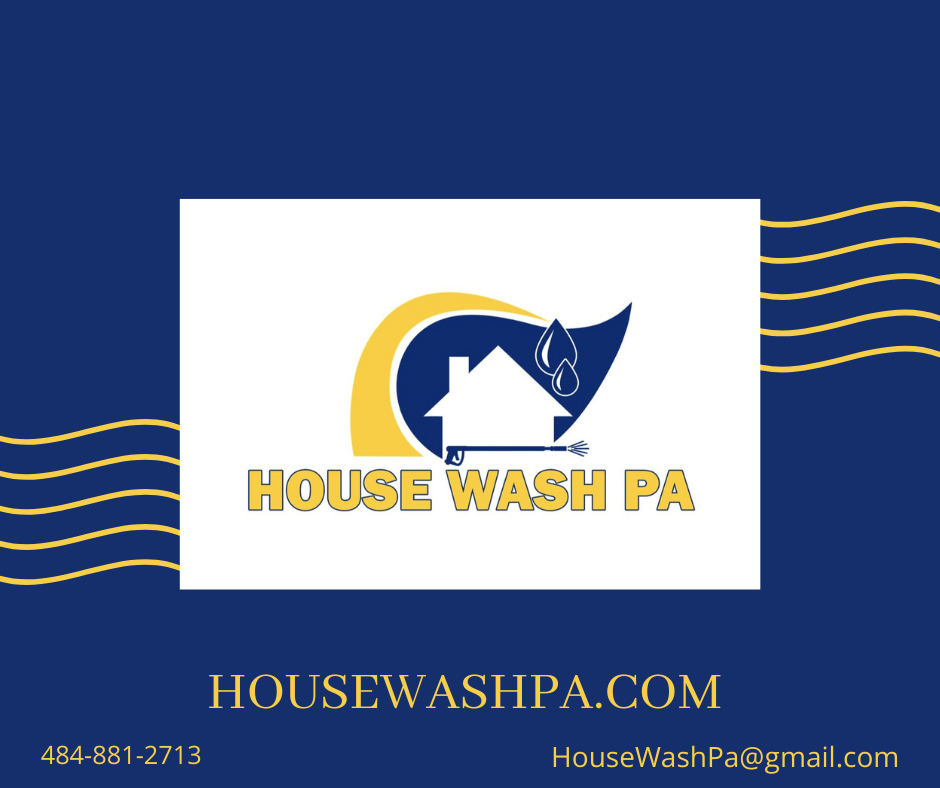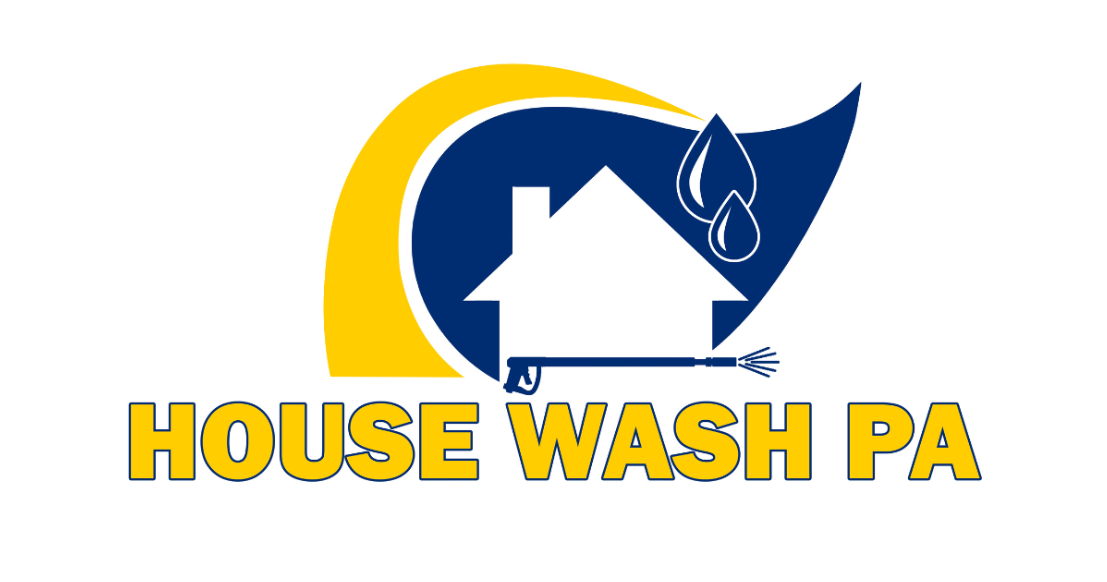A Comprehensive Guide To Understanding the Science Behind Soft Washing Chemicals
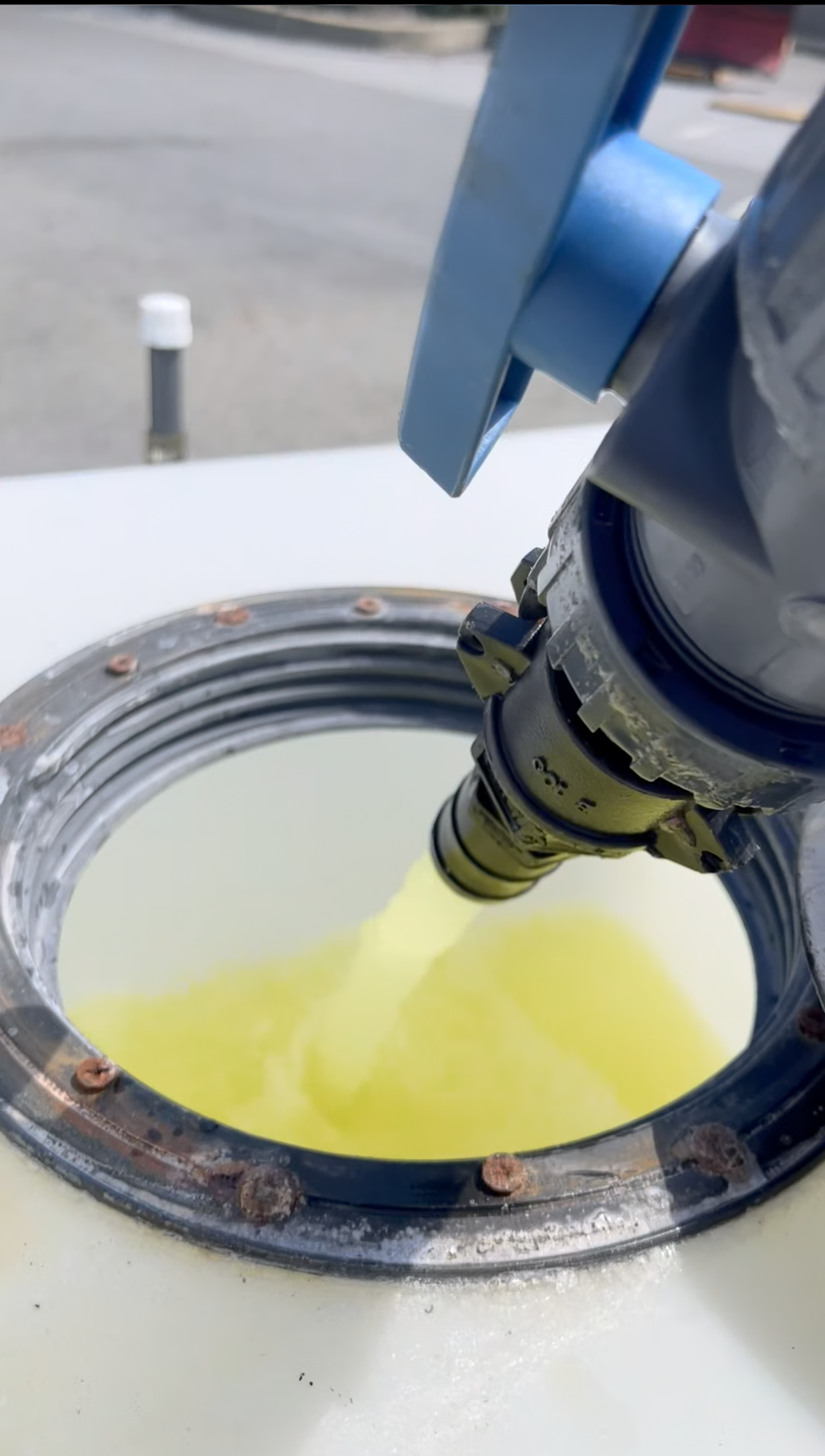
What is soft washing?
Soft washing is a low-pressure cleaning technique that uses a combination of water and specially formulated cleaning agents to remove dirt, grime, stains, and other contaminants from surfaces such as roofs, decks, sidewalks, and siding. Unlike pressure washing, which uses high-pressure water to blast away dirt and grime, soft washing relies on the cleaning power of chemicals to achieve the desired results.
This method is particularly effective for cleaning surfaces prone to damage or requiring a delicate touch. Soft washing is also environmentally friendly because it uses less water than pressure washing, and the chemicals used are biodegradable and safe for plants, animals, and people when used correctly.
The process typically involves applying the cleaning solution to the surface to be cleaned, allowing it to penetrate and break down contaminants, and then rinsing it off with low-pressure water. Soft washing is a proven cleaning method that can help keep your home or business looking new for longer while also protecting the surfaces from damage and extending their lifespan.
The science behind soft washing chemicals
Soft washing is not just a cleaning process; it is a science. The specially formulated chemical solutions used in soft washing contain a combination of surfactants, bleach, and water-soluble solvents.
Surfactants are the compounds in the solution that help to break down dirt and grime, allowing it to be easily rinsed away. These surfactants contain one end that is attracted to water and the is attracted to dirt. The surfactants attach themselves to the dirt particles, lifting them from the surface to be cleaned.
Sodium hypochlorite is another essential component of soft washing chemicals. Sodium hypochlorite is a powerful oxidizer that destroys organic materials, such as algae, mold, and mildew.
Water-soluble solvents are added to the mixture to make sure that the cleaning solution penetrates deep into the pores of the surface being cleaned. These solvents effectively clean porous materials such as brick and stucco.
When used correctly, the combination of these chemicals helps remove all traces of contaminants from the surface being cleaned. Soft washing is safe and effective, and it has been successfully used on various surfaces, including roofs, decks, stucco, vinyl, fiber cement board, pavers, and more.
It is essential to understand that while soft washing is safe for most surfaces, choosing a reputable and experienced soft washing company to handle the task is necessary. Only trained professionals with the right equipment and knowledge can ensure that your surfaces are cleaned correctly and protected from damage.
Sodium Hypochlorite: The Key Ingredient in Soft Washing Chemicals
Sodium Hypochlorite (SH) is a crucial ingredient in the chemical solutions used in soft washing. It is a powerful oxidizing agent that effectively breaks down organic materials, such as mold, mildew, algae, and other contaminants that occur on surfaces.
Sodium Hypochlorite oxidizes the pigments that cause stains, making them easier to remove. It also breaks down proteins and enzymes, which cause the growth of mold and mildew. Sodium hypochlorite effectively kills germs, pathogens, and bacteria, making it an essential ingredient in cleaning solutions.
The concentration of bleach used in soft washing varies depending on the type of surface being cleaned, the severity of the contamination, and other factors. Professional soft washing companies use a higher concentration of sodium hypochlorite for tougher stains and mildew growth while a lower concentration for general cleaning.
It is important to note that improper use of sodium hypochlorite can damage the surface. Sodium hypochlorite can cause discoloration, pitting, and even deterioration of some materials, making it essential to hire a professional soft washing company that understands the proper use and concentration of sodium hypochlorite.
Sodium hypochlorite is a powerful ingredient in soft washing chemicals, which helps to remove contaminants from surfaces. Professional soft washing companies know how to use this ingredient correctly to ensure that surfaces are cleaned efficiently without causing any damage.
Surfactants
Surfactants are an essential ingredient in soft washing chemical solutions. They help to break down dirt, grime, and other contaminants and allow them to be removed from surfaces. Surfactants are made up of two parts: a hydrophilic (water-loving) head and a hydrophobic (water-repelling) tail.
The hydrophilic head of the surfactant is attracted to water, while the hydrophobic tail is attracted to oil and grease. When added to water, surfactants lower the surface tension and help to emulsify and suspend dirt and grime.
Different types of surfactants are used in soft washing chemical solutions, including anionic, cationic, nonionic, and amphoteric surfactants. Anionic surfactants are the most common and are effective in removing dirt and grime from most surfaces. Cationic surfactants are more effective in removing grease and oil.
Nonionic surfactants are commonly used when cleaning more delicate surfaces that may be sensitive to harsh chemicals. Amphoteric surfactants are used when cleaning surfaces that may be sensitive to alkaline or acidic chemicals.
Surfactants are an essential part of soft washing chemical solutions, and their use varies depending on the type of surface being cleaned. Professional soft washing companies know how to select the appropriate surfactant and concentration to ensure that the cleaning solution is effective without causing any damage to the surface.
In conclusion, surfactants play a crucial role in soft washing and help to remove dirt, grime, and other contaminants from surfaces. Professional soft washing companies understand how to select the appropriate surfactant and concentration to ensure effective cleaning without causing any damage.
Algaecides/Biocides
Along with surfactants, algaecides and biocides are important ingredients in soft washing chemicals. These chemicals are specifically formulated to kill and prevent the growth of algae, mold, and other microorganisms.
Algaecides and biocides work by penetrating the cell walls of microorganisms and destroying them at the source. When used in conjunction with surfactants, they provide a comprehensive solution for cleaning and sanitizing surfaces.
There are several different types of algaecides and biocides used in soft washing chemical solutions, including:
- Benzalkonium chloride: an effective algaecide that also has antimicrobial properties
- Sodium hypochlorite: a powerful biocide that is effective against a wide range of microorganisms
- Quaternary ammonium compounds: a group of chemicals that have both algaecidal and antimicrobial properties
- Peroxyacetic acid: a potent biocide that is effective against a wide range of microorganisms, including bacteria, viruses, and fungi.
The use of algaecides and biocides in soft washing is essential, particularly in humid environments where microorganisms can grow and spread quickly. Professional soft washing companies understand how to use these chemicals safely and effectively, ensuring that surfaces are thoroughly cleaned without causing any harm to people, animals or the environment.
Algaecides and biocides are essential ingredients in soft washing chemical solutions. They help to kill and prevent the growth of microorganisms, ensuring that surfaces are thoroughly cleaned and sanitized.
Understanding pH Balance in Soft Washing Chemicals
pH balance is an essential aspect to consider when selecting soft washing chemicals. The pH scale ranges from 0 to 14, with 7 being neutral, below 7 being acidic, and above 7 being alkaline.
The pH balance of a cleaning solution affects how effective it is in removing different types of dirt and stains. The pH balance can also affect the safety of the cleaning solution, as highly acidic or alkaline chemicals can be dangerous to people, animals, and the environment.
In soft washing, the ideal pH balance is between 7 and 9. This range is effective in removing dirt, stains, and microorganisms without damaging surfaces or harming the environment. Highly acidic or alkaline soft washing chemicals can damage surfaces such as roofs, siding, and concrete, leading to costly repairs.
Soft washing companies should carefully select cleaning solutions that are pH-balanced and safe for all surfaces. Testing the pH balance of a cleaning solution before use is important, as well as following the manufacturer's recommendations for dilution and application.
Understanding the pH balance in soft washing chemicals is crucial to ensure effective and safe cleaning of surfaces. Soft washing companies must select pH-balanced cleaning solutions, test the pH balance before use, and follow manufacturer recommendations for dilution and application. A proper pH balance in soft washing chemicals will not only effectively clean surfaces but also help prevent costly damages.
Importance of neutralizing sodium hypochlorite
It's important to neutralize sodium hypochlorite after using it for soft washing. Neutralizing will help prevent any damage to the surface you cleaned and ensure it remains in good condition for longer. One effective way to neutralize sodium hypochlorite is to rinse the surface with water and sodium thiosulfate to neutralize any remaining chemical residue. Sodium thiosulfate is a reducing agent that reacts with the hypochlorite ions in sodium hypochlorite to form harmless chloride ions. Dissolve sodium thiosulfate in water and apply it to the surface. Allow the solution to sit for a few minutes before rinsing thoroughly with water.
Risks and Safety Precautions in Soft Washing Chemicals
Using chemical solutions for soft washing can be hazardous if the proper safety precautions are not followed. Soft washing companies must take appropriate safety measures to protect their workers and the environment.
Some risks associated with soft washing chemicals include skin and eye irritation, respiratory problems, and environmental contamination. The following are safety precautions that should be taken by soft washing companies to minimize these risks:
- Protective Gear: Soft washing companies should provide their workers with appropriate protective gear, including gloves, goggles, respirators, and protective clothing.
- Proper Training: Workers need to be trained on the appropriate handling and application of soft washing chemicals. They should also be instructed on the possible risks associated with the chemicals.
- Dilution and Application: Soft washing chemicals should be diluted as per the manufacturer's instructions. The application process should also be done correctly and not directed towards plants or open water bodies.
- Environmental Impact: Soft washing companies must use chemicals that are safe for the environment and do not cause any long-term damage to the ecosystem.
- Storage and Disposal: Soft washing chemicals should be stored in a cool, dry place, away from sunlight and heat sources. They should also be disposed of properly, following local regulations and guidelines.
Soft washing companies must be aware of the potential risks associated with soft washing chemicals and take appropriate safety precautions. This protects the workers and ensures the environment is not negatively impacted. By following the safety measures outlined above, companies can continue providing effective soft washing services while minimizing potential risks.
Choosing the Right Soft Washing Chemicals for Your Needs
When it comes to choosing the right soft washing chemicals, there are a few things to consider. The type of surface you are cleaning, the level of dirt or grime buildup, and the environmental impact are all factors that should guide your decision. Here are a few tips to keep in mind when choosing soft washing chemicals:
- Know Your Surface: Different surfaces require different cleaners. For example, a roof cleaning solution would differ from one used to clean a brick wall or a wood deck. The wrong cleaning solution can damage the surface, so it is essential to choose the right one.
- Determine the Degree of Dirt and Grime Buildup: The dirt or grime buildup level will dictate the strength of the cleaning solution needed. A heavy-duty solution may be required for heavily soiled surfaces, while a lighter solution may be sufficient for less dirt or grime.
- Consider the Environmental Impact: The impact of soft washing chemicals on the environment should be a consideration when choosing a cleaning solution. Make sure to select an environmentally friendly product that does not contain harmful chemicals.
- Read the Label: Always read the product's label carefully. The label contains important information regarding the cleaning solution's proper use, application, and disposal.
- Consult with a Professional: If unsure which cleaning solution is best for your specific needs, consult with a professional. They can offer valuable advice and recommend the best soft washing chemicals for your needs.
Choosing the right soft washing chemicals is crucial for effective cleaning and protecting the environment. By considering factors such as surface type, degree of dirt buildup, and environmental impact, you can make an informed decision and achieve the best results without causing harm.
Final Thoughts
Understanding the science behind soft washing chemicals is vital to achieving the best results while protecting the environment. By following the guidelines on choosing the right soft washing chemicals for your needs, you can effectively clean different surfaces without causing any damage. Remember to read the label carefully and consult with a professional if necessary. With these tips, you can ensure that your soft washing methods are effective, efficient, and eco-friendly.

